Latest Applications Open 2024:
Chhatrapati Shahu JI Maharaj University 2024 syllabus will be made available by the Head of University which is also called Kanpur University.
The students are enrolling in the various postgraduate and undergraduate courses including BA, BCA, B.com, MA and many more.
Those applying for the exam have to go through the Kanpur University Syllabus 2024. The syllabus can be viewed by visiting the official page by the link provided by CSJMU University.
The Processes to Check the Syllabus CSJMU 2024
- There is a website where you can access the syllabus that is kanpuruniversity.org
- After that, you will have to click on the University Syllabus button.
- The moment you do this; a new window will appear having the mention of thorough courses.
- You are required to click on the suitable link course-wise.
- Then the course scheme will pop up on the computer screen in PDF form.
- The last thing would be to download it to be used later.
Kanpur University BSC Syllabus 2024
First Year :
Paper I Inorganic Chemistry
Paper II Organic Chemistry
Paper III Physical Chemistry
Inorganic Chemistry :
Unit – I
I. Atomic Structure:
The idea of de-Broglie matter waves, Heisenberg uncertainty principle, atomic
orbitals, Schrödinger wave equation, the significance of Y and Y2, quantum
numbers, radial, and angular wave functions and probability distribution curves,
shapes of s, p, d, orbitals, Aufbau and Pauli exclusion principles, Hund’s
multiplicity rule, Electronic configurations of the elements, effective nuclear
charge.
Latest Applications For Various UG & PG Courses Open 2024
-
- Parul University | Admissions Open for All Courses 2024. Apply Now
- UPES Dehradun | Admissions Open for All Courses 2024. Apply Now
- Chandigarh University | Admissions Open for All Courses 2024. Apply Now
- LPU 2024 | Admissions Open for All Courses 2024. Apply Now
- IIAD, Delhi | Admissions Open for All Courses 2024. Apply Now
- GIBS, Bangalore | PGDM Applications Open. Package upto 15.5 LPA. Apply Now
- GNIOT, Greater Noida | Admissions Open for All Courses 2023. Apply Now
- The Design Village | Admissions Open for All Courses 2024. Apply Now
- IMS Ghaziabad UC Campus | Admissions Open for All Courses 2024. Apply Now
- KIIT School of Management | Admissions Open for All Courses 2024. Apply Now
- KSRM | Admissions Open for All Courses 2024. Apply Now
- Jaipuria Institute of Management | Admissions Open for All Courses 2024. Apply Now
- NIIT | Admissions Open for All Courses 2024. Apply Now
- MITWPU | Admissions Open for All Courses 2024. Apply Now
- Amrita B.Tech | Admissions Open for All Courses 2024. Apply Now
- KL University | Admissions Open for All Courses 2024. Apply Now
- Alliance MBA | Admissions Open for All Courses 2024. Apply Now
- Alliance UG | Admissions Open for All Courses 2024. Apply Now
II. Periodic Properties:
Atomic and ionic radii, ionization energy, electron affinity, and electronegativity definition,
methods of determination or evaluation, trends in the periodic table and
applications in predicting and explaining chemical behavior.
Unit – II
III. Chemical Bonding:
(A) Covalent Bond – Valence bond theory and its limitations, directional
characteristics of a covalent bond, various types of hybridization and
shapes of simple inorganic molecules and ions, valence shell electron
pair repulsion (VSEPR) theory to NH3, H3O+, SF4, CIF3, ICl-
2 and H2O,
MO theory, homonuclear and heteronuclear (CO and NO) diatomic
molecules, multicenter bonding in electron-deficient molecules, bond
strength and bond energy, percentage ionic character from the dipole
moment and electro-negativity difference.
(B) Ionic Solids – Ionic structures, radius ratio effect, and coordination
number, limitation of radius ratio rule, lattice defects, semiconductors,
lattice energy and Born-Haber cycle, salvation energy and solubility of
ionic solids, polarizing power, and polarizability of ions, Fagan’s rule,
Metallic bond-free electron, valence bond, and band theories.
(C) Weak Interactions – Hydrogen bonding, Vander Waals forces.
Unit – III
IV. s-Block Elements:
Comparative study, diagonal relationship, salient features of hydrides, solvation
and complexation tendencies including their function in biosystems, an
introduction to alkyls and aryls.
V. Chemistry of Noble Gasses:
Chemical properties of the noble gases, the chemistry of xenon, structure and
bonding in xenon compounds.
Unit – IV
VI. p-Block Elements:
A comparative study (including diagonal relationship) of groups 13-17 elements,
compounds like hydrides, oxides, oxyacids, and halides of group 13-16,
hydrides of boron-diborane and higher boranes, borazine, borohydrides,
fullerenes, carbides, fluorocarbons, silicates (structural principle), tetrasulphur
tetranitride, basic properties of halogens, interhalogens, and polyhalides.
Kanpur University B.Com 2024 Syllabus-
GROUP-A: PAPER-I BUSINESS COMMUNICATION
OBJECTIVE
The objective of this course is to develop effective business communication
skills among the students.
COURSE INPUTS
UNIT I Introducing Business Communication: Basic forms of communicating;
Communication models and processes; Effective communication; Theories of
communication; Audience analysis.
UNIT II Self-Development and Communication Development of positive personal
attitude; SWOT analysis; Vote’s model of interdependence; Whole
communication.
UNIT III Corporate Communication: Formal and informal communication networks;
Grapevine; Miscommunication (Barriers); Improving communication.
Practices <
Seminars; Effective listening exercises; Individual and group presentations and
reports writing.
UNIT IV Principles of Effective Communication.
UNIT V Writing Skills; Planning business messages; Rewriting and editing; The first
draft; Reconstructing the final draft; Business letters and memo formats;
Appearance request letters; Good news and bad newsletters; Persuasive letters;
Sales letters; Collection letters; Office memorandum.
UNIT VI Report Writing: Introduction to a proposal, short report and formal report, report
preparation.
Oral Presentation: Principles of oral presentation, factors affecting presentation,
sales presentation, training presentation, conducting surveys, speeches to
motivate effective presentation skills.
UNIT VII Non-Verbal Aspects to Communicating.
Body language: Kinesics, Proxemics, Paralanguage.
Effective listening: Principles of effective listening; Factors affecting listening
exercises; Oral, written, and video sessions.
Interviewing Skills: Appearing in interviews; Conducting interviews; Writing
resume and letter of application.
Modern Forms of Communicating: Fax; E-mail: Videoconferencing etc.
International Communication: Cultural sensitiveness and cultural context.
Writing and presenting in international situations; Inter-cultural factors in
interactions; Adapting to global business.
Kanpur University B.Ed Syllabus 2nd Year:
PAPER- I Development Of Education System In India And Its Challenges
UNIT –I Education in Ancient and Medieval India Education in India during
- Vedic Period
- Buddhist Period
- Medieval Period
UNIT- II Education during British Period
- Beginning of the British Education system in India, Macaulay’s Minutes and Bentinck’s Resolution of 1835
- Adam’s Report and its Recommendations
- Wood’s Dispatch – 1854
- Recommendations of Indian Education Commission (Hunter Commission)- 1882, its influence on the subsequent development of education
- Lord Curzon’s educational policy
- Essential features of Sadler Commission -1917 2
- Wardha scheme of education (Basic Education)-1937
- Sargent Report-1944
UNIT- III Education in Post Independence Period
- The University Education Commission (Radhakrishnan Commission 1948-49)
- The Secondary Education Commission (Mudaliar Commission 1952-53)
- Education Commission or Kothari Commission(1964-66)
- National Policy on Education (1986) and Program of Action (1992)
- National Curriculum Framework for School Education-2005
UNIT –IV Present Scenario of Indian Education
- Pre-Primary and Primary Education
- Secondary Education
- Higher Education
- Teacher Education
- Adult Education
- Distance Education and Open Education
- Technical and Vocational Education
- National and State Agencies for Enhancement of Quality
- National Level- NCERT,NCTE,NAAC
- State Level- SCERT, DIET
UNIT-V Challenges of Indian Education System
- Universalization of Elementary Education
- Vocationalisation of Secondary Education
- Rashtriya Madhyamik Shiksha Abhiyan(RMSA)
- Privatization and Commercialization of Education
- Examination Reforms
- Deterioration in Educational Standards Practicum/ Internal assessment
- Assignment 05marks
- Presentation with PowerPoint 05 Marks
- Unit test 05 Marks
PAPER-II Curriculum Development And Assessment
UNIT-I Basics of Curriculum
- Concept, Nature, and Meaning of Curriculum
- Core and Hidden curriculum
- Components of Curriculum (objectives, content, learner experiences, and Evaluation system)
- Role of Curriculum in effective teaching
- Role of teacher in Curriculum Development
UNIT-II Principles, Planning, and Approaches to Curriculum Development
Principles- Student-centered, Subject-centered, Activity Centered and Community-centered, Approaches of Curriculum Development- System analysis, Integrated, Humanistic Disciplinary and Interdisciplinary Approach
Latest Applications For Various UG & PG Courses Open 2024
-
- Parul University | Admissions Open for All Courses 2024. Apply Now
- UPES Dehradun | Admissions Open for All Courses 2024. Apply Now
- Chandigarh University | Admissions Open for All Courses 2024. Apply Now
- LPU 2024 | Admissions Open for All Courses 2024. Apply Now
- IIAD, Delhi | Admissions Open for All Courses 2024. Apply Now
- GIBS, Bangalore | PGDM Applications Open. Package upto 15.5 LPA. Apply Now
- GNIOT, Greater Noida | Admissions Open for All Courses 2023. Apply Now
- The Design Village | Admissions Open for All Courses 2024. Apply Now
- IMS Ghaziabad UC Campus | Admissions Open for All Courses 2024. Apply Now
- KIIT School of Management | Admissions Open for All Courses 2024. Apply Now
- KSRM | Admissions Open for All Courses 2024. Apply Now
- Jaipuria Institute of Management | Admissions Open for All Courses 2024. Apply Now
- NIIT | Admissions Open for All Courses 2024. Apply Now
- MITWPU | Admissions Open for All Courses 2024. Apply Now
- Amrita B.Tech | Admissions Open for All Courses 2024. Apply Now
- KL University | Admissions Open for All Courses 2024. Apply Now
- Alliance MBA | Admissions Open for All Courses 2024. Apply Now
- Alliance UG | Admissions Open for All Courses 2024. Apply Now
UNIT-III Determinants and Models of Curriculum development
- 5 Determinants of Curriculum (Philosophical, Social and Psychological, Economical, Environmental and Pedagogical).
- Values enshrined in the Indian constitution as determinants of Curriculum – Social,
- Justice, Equality, and Secularism
- Models of curriculum development–Grass-Root Model, Administrative Model,
- Demonstration Model,
UNIT-IV Issues and Trends in Curriculum Development
Centralized v/s decentralized Curriculum, Information Explosion, ICT, Liberal education New dimensions in educational and vocational areas, Role of curriculum support materials, Place of Moral Education and Value Education in Curriculum.
UNIT –V Curriculum Evaluation & Assessment
- Concept, Need, and importance of Curriculum Evaluation and Assessment
- Trends and techniques in curriculum evaluation– pre /post-test, norms referenced and
- Criterion-Referenced, Formative and Summative, reconstruction and retesting of curriculum
- Continuous and Comprehensive Evaluation of learner
- Assessment of school experiences/internship program, fieldwork/curricular and co-curricular activities.
- Assessment of teaching proficiency by peer group and by teacher and self-assessment by the student
- UNIT – VI Educational Statistics
- Measures of Central Tendency- Meaning, Nature, and types
- Measures of Deviations- Meaning, Nature and types
- Measures of Correlation- Meaning, Nature and types (Product Moment and Rank Difference Method)
- Normal Probability Curve- its characteristics
If you have any other Questions related to CSJMU Syllabus 2024, you may ask your Queries by commenting below.

My name is Farheen Ansari, and I am a dedicated writer passionate about covering the latest updates in the education sector, specifically Universities and Entrance Examinations. Her interest in the field and commitment to staying up-to-date with the latest developments enable her to provide insightful and informative coverage. With a focus on helping students and parents make informed decisions about their academic pursuits, writing is driven by a desire to share knowledge and promote learning. Join us as we explore the exciting world of education, a trusted source of information and an expert in her field.


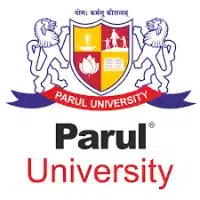
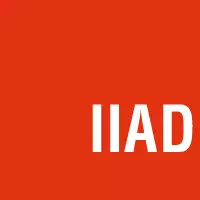
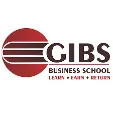
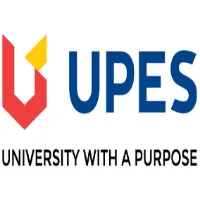
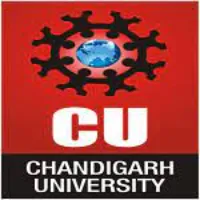
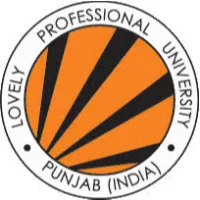
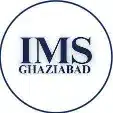

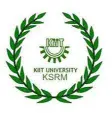
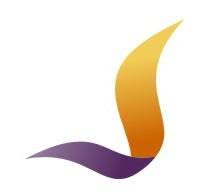

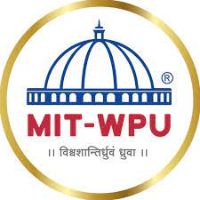
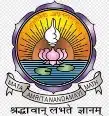
Syllabus list with writer BA 1st year
BEd 1st semester syllabus of CSJM University